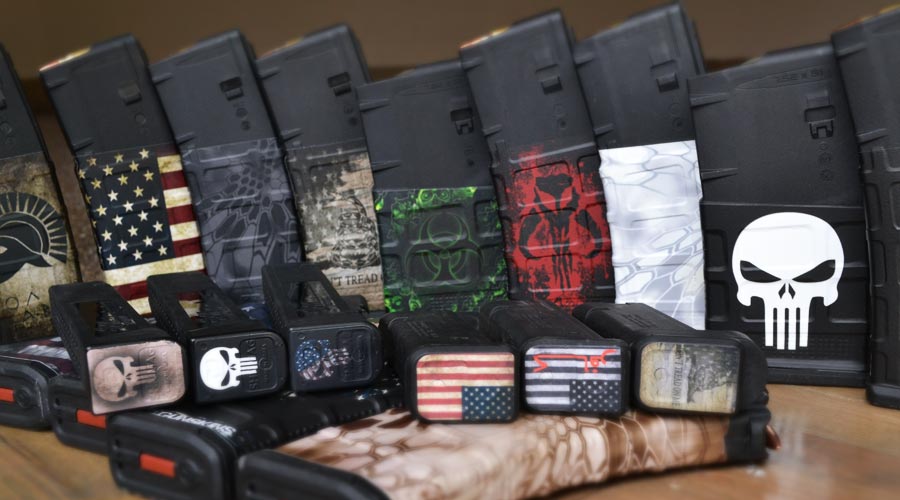Buying a gun is more challenging than buying any other product. Before you know what gun you should buy, you need to understand certain things about firearms. You may wonder how to buy a gun when you first take an interest in it. In this article, we will provide all the information you need to get a firearm that suits your security needs confidently.
Steps to Owning a Gun
Of course, most people have to buy guns because they want to protect themselves and their loved ones. But there are many other reasons why you may want or need a weapon (self-defense, for example). It all depends on your needs. So let's look at how to get a firearm that suits your circumstances and needs best.
Do Some Research On What Suits You
First, you'll want to ensure you've researched the type of gun that suits your situation best. There are plenty of different kinds of firearms — pistols, rifles, shotguns, etc. — so you must know what you're looking for before going out and buying anything.
Check on the Minimum Age
In many regions, legal residents and Citizens must have attained 18 years to purchase rifles, ammunition, and shotguns. Citizens over 21 can buy any other type of firearm, such as pistols.
The Gun Control Act of 1968 (GCA) regulates gun ownership on a federal level. State or municipal authorities can implement more firearm age limitations but cannot lower the federal minimum.
The Firearms Market
The Gun Control Act (GCA) restricted the interstate transportation of firearms. The rule mandates the acquisition of a federal license for those involved in the business of dealing in firearms. However, it prohibits firearms transfers to specific individuals and controls the importation of certain guns unsuited for sporting purposes. The Treasury Secretary grants those who produce, import, or deal in firearms a license.
Often referred to as federal firearms licensees (FFLs), they may ship, carry, and receive firearms locally or internationally thanks to the license. When transferring weapons, the FFL must follow all applicable regulations and keep records of all purchases and sales of firearms. The documentation makes it possible to track down some crime-related guns.
Take a Background Check
By law, all federal firearms licensees are required to carry out a check. Prospective gun buyers must fill in the ATF 4473 federal form. The form is used to provide data used in checks for criminal characteristics and prior offenses. The firearm licensee then uses the information provided on the federal form to carry out the check.
The FBI's (NICS) National System for Instant Criminal Background Check is an avenue for conducting instant checks. FFLs can also use a combination of state agency data and NICS for the best results on background checks. More than one-third of states utilize the federal system to conduct these checks.
Typically, the checks should take less than ten minutes to complete online or by phone. The check immediately responds to the FFL holder: to approve, deny, or delay. An inconclusive result indicates the need for additional data for at least three business days, after which the licensees may act on their judgment.
Note that the Act does not apply to someone who purchases arms from persons without an FFL.
Frequently Asked Questions
Who Can Not Own a Firearm?
The gun control act states that the following persons cannot possess a firearm at any given point:
- Fugitives
- Felons
- Illicit drug users or drug addicts.
- People committed to psychiatric hospitals or deemed "mentally defective."
- Former military individuals dismissed dishonorably.
- Individuals who have relinquished their citizenship in the United States.
- Nonimmigrant or illegal aliens.
- Individuals covered by certain domestic violence protective orders.
- Those found guilty of domestic violence misdemeanors.
Do States Require Permits to Carry Firearms?
Almost 20 states in the USA allow the constitutional carry of firearms. Most states require a permit to carry a handgun. The rules governing open and concealed carry vary from state to state.
In some states, residents can carry firearms without a permit.
Only Alaska, Arizona, and Vermont can be classified using this criterion. Nonetheless, they will grant permits so that their citizens can carry weapons legally in other states that accept Arizona and Alaska permits.
No provision in the law allows a citizen to carry a concealed handgun in the states of Wisconsin, Illinois, and the District of Columbia.
Takeaways
Following the assassinations of President John F. Kennedy, Dr. Martin Luther King, Jr, and Senator Kennedy, Congress passed the 1968 (GCA) Gun Control Act.
As modified over time, the GCA is still the main instrument for federal arms regulation.
The GCA intends to prevent firearms from falling into the wrong hands or those illegally prohibited from owning them. Unlawful parties are classified by age, criminal history, or incapacity. The GCA also intends to support law enforcement authorities in their efforts to combat the rising crime rate.







